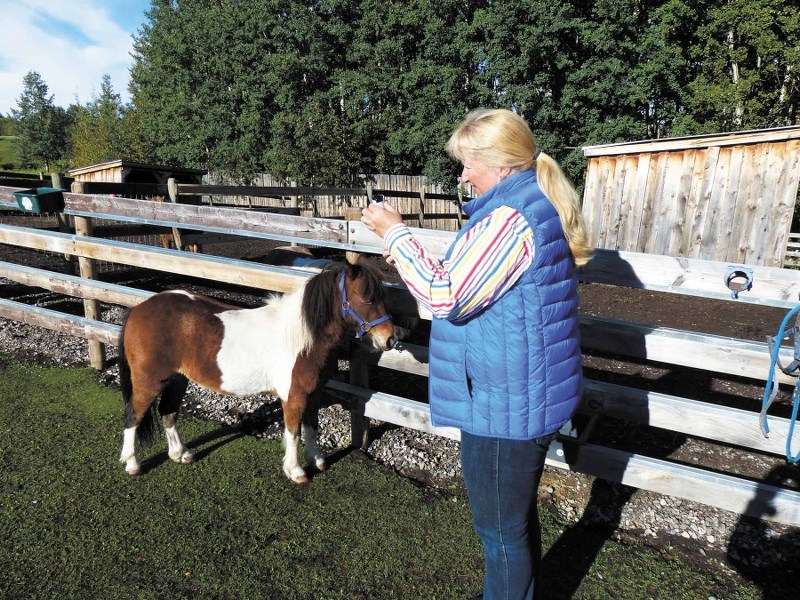It is amazing how something that is a very small percentage of the equine diet can have a big impact on equine health. I am referring to vitamins and minerals. These tiny substances need to be available in the correct amounts and balance to insure your horse is healthy and his body is functioning correctly.
This was brought home in a discussion I had with a person who had knowledge of one of my horses before I owned him. We were chatting about my little horse and I commented how he seemed to be more sensitive these days and tended to over react to things. This lady asked me how I was providing a vitamin B supplement to my horse – this was news to me! Apparently my little horse had a known vitamin B deficiency and was receiving supplements prior to my ownership. I immediately began to investigate vitamin B and was surprised to learn that there are lots of folks already supplementing their performance horses with vitamin B. While it is “trendy” now, there are situations where it is beneficial to supplement. Since my little horse needs the added support of additional vitamin B when he is being worked regularly, I will provide what he needs. There are a couple of ways to get additional vitamin B into my horse – feed nutritional supplements or inject the vitamin directly. Since the injection route was used successfully by his previous owner, I will continue that method. Sometimes injecting is a more direct delivery method for the vitamin.
So how do you know if your horse has a vitamin or mineral deficiency? The obvious signs are a change in overall health, appearance or performance although many other factors can also cause these changes. A detailed analysis of everything your horse eats will tell you if your horse is receiving the correct balance of all the nutrients, vitamins and minerals he requires. An equine nutritionist has the tools to specifically analyze the food going in to your horse. You can have your forage analyzed for content to complete the picture as to what your horse is getting.
You must be careful when supplementing as it is possible to over supplement and cause a toxic situation. Some vitamins are just excreted out of the body if the quantities become too high but others can cause problems if the concentrations are too high. For example, too much vitamin A can cause stunted growth, poor skin condition, depression, weight loss, hair loss, neurological dysfunction, serious bone deformities and death.
Vitamins are organic compounds that are vital to a wide variety of biochemical processes in the horses’ body. They can be divided into two categories: fat soluble ones (vitamins A, D, E and K) and water soluble ones (vitamins B and C). The fat soluble ones are the vitamins that can build up to toxic levels if out of balance but the water soluble ones can be excreted out of the body if they build up.
Minerals are inorganic substances also required by the body for vital functions. There are actually 14 different minerals considered essential for a healthy horse. These minerals fall in to two categories: macrominerals (calcium, phosphorus, magnesium, potassium, sodium, chlorine, sulphur) and microminerals or trace minerals (iron, copper, iodine, zinc, manganese, cobalt, selenium). The macrominerals are required in larger quantities while the trace minerals are only needed in small quantities. It is the balance between all these minerals that is most important, toxicity is not a huge problem.
Over-supplementing vitamins and minerals is costly, and in some cases can be toxic to a horse. The best thing you can do for your horse is to provide a well-balanced diet that includes the recommended amounts of the various vitamins and minerals for your horse’s age and performance requirements. Your veterinarian or a qualified equine nutritionist can advise you on the best way to meet the nutritional needs of your equine friend.




